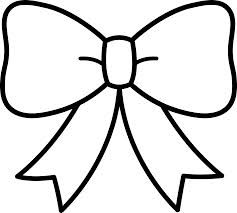bow
英 [baʊ]
美 [baʊ]
- n. 弓;鞠躬;船首
- vi. 鞠躬;弯腰
- vt. 鞠躬;弯腰
- adj. 弯曲的
- n. (Bow)人名;(东南亚国家华语)茂;(英)鲍
使用频率:

记忆方法
将“bow”与动作“弯腰”或“鞠躬”联系起来,想象自己为了表示尊敬或礼貌而进行这个动作,这样就能直观地记住单词“bow”的含义。
以上内容由AI生成, 仅供参考和借鉴
中文词源
bow 鞠躬,弓
来自PIE *bheug, 弯。
英语词源
- bow
-
bow: There are three distinct words bow in English, although two of them, ‘arrow-shooter’ [OE] and ‘bend the body’ [OE], are ultimately related. Bow for arrows comes from Old English boga, which also meant more generally ‘arch’; its source was Germanic *bugon, a derivative of *bug-, the short stem of *beugan. This *beugan was also the source of Old English bōgan, antecedent of modern English bow ‘bend the body’, while the short stem lies additionally behind bright [OE] and bout [16]. Buxom, which originally meant ‘flexible’ and ‘obedient’, derived from bow ‘bend the body’.
The other bow ‘front of a boat’ [15] was probably borrowed from Dutch boeg, a word related to English bough.
=> bight, bout, buxom; bough - bow (v.)
- Old English bugan "to bend, to bow down, to bend the body in condescension," also "to turn back" (class II strong verb; past tense beag, past participle bogen), from Proto-Germanic *bugon (cognates: Dutch buigen, Middle Low German bugen, Old High German biogan, German biegen, Gothic biugan "to bend," Old Norse boginn "bent"), from *beugen, from PIE root *bheug- (3) "to bend," with derivatives referring to bent, pliable, or curved objects (cognates: Sanskrit bhujati "bends, thrusts aside;" Old High German boug, Old English beag "a ring"). The noun in this sense is first recorded 1650s. Related: Bowed; bowing. Bow out "withdraw" is from 1942.
- bow (n.1)
- weapon for shooting arrows, Old English boga "archery bow, arch, rainbow," from Proto-Germanic *bugon (cognates: Old Norse bogi, Old Frisian boga, Dutch boog, German Bogen "bow;" see bow (v.)). The sense of "a looped knot" is from 1540s. The musician's bow (1570s) formerly was curved like the archer's. Bowlegged is attested from 1550s.
- bow (n.2)
- "front of a ship," mid-14c., from Old Norse bogr or Middle Dutch boech "bow of a ship," literally "shoulder (of an animal)," the connecting notion being "the shoulders of the ship." See bough.
权威例句
- 1. We should not have to bow down to anyone.
- 我们不必向任何人示弱。
- 2. Add a length of ribbon tied in a bow.
- 再用一段丝带,系个蝴蝶结。
- 3. I untied the bow and unwrapped the small box.
- 我解开蝴蝶结,拆开小盒子的包装。
- 4. He acknowledged the applause with a small bow.
- 他微微地鞠了一躬表示对掌声的感谢。
- 5. Farling smiled in acknowledgement and gave a bow.
- 法林微笑示意,又躬身行了个礼。
